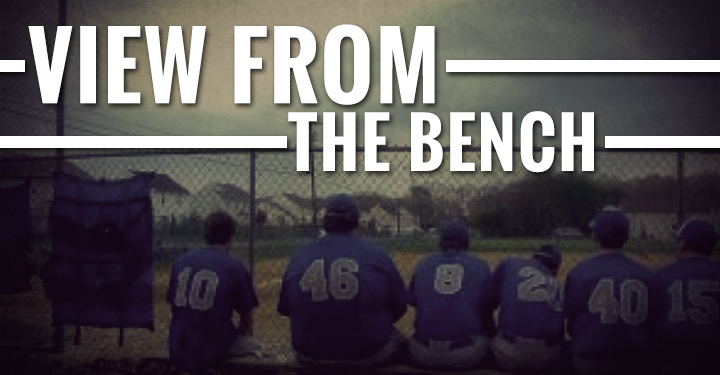The word “incognito” comes from the Latin incognitus, referencing that behind an action is someone who wants to remain anonymous. However, over the past week, the name “Incognito” has become anything other than someone trying to be hidden.
Soon-to-be former Miami Dolphin offensive lineman Richie Incognito is nowpersona non gratis in professional sports. Everyone is distancing themselves from him. He has become a pariah and sports reporters and analysts are condemning his actions. For the few of you not familiar with the latest revelations, Incognito relentlessly harassed teammate and fellow offensive lineman Jonathan Martin. Incognito violated almost every form of acceptable interpersonal behavior in his vile and threatening communications with Martin.
Just 13 years ago, Incognito was an All-American High School Player for Mountain Ridge High School in Glendale. He won the Frank Kush Award as the best offensive lineman in Arizona and was a finalist for Arizona Player of the Year. So when did this standout Arizona high school football player begin his downward path?
It appears that it started while playing football for Nebraska. Despite exceptional game performances, Incognito was ejected from one game and benched for part of another as a result of a fight against Penn State. He was then suspended in 2003, convicted of misdemeanor assault in February, 2004 and then suspended again at the very beginning of the 2004 football season. He left Nebraska in September of that year, transferred to the University of Oregon later that month, and was dismissed from the team within about one week of his arrival for not adhering to the conditions set for him by the football program. He never played another college game but was seen as perhaps the strongest and most physically-dominating player at the 2005 NFL Combine. Despite his incomparable talent and the premium that exists for offensive lineman, many teams avoided him in the draft. Tony Dungy, then coach of the Colts, placed Incognito on the DNDC List (which apparently is an acronym for “Do Not Draft-Character). He fell all the way to the 3rd round when the Rams selected him as the 81st overall pick.
Outstanding performance combined with major behavioral concerns followed him ever since. In his four years with the Rams, he excelled on the offensive line but also had 38 penalties called against him, including seven unnecessary roughness calls, the most for any player during that time span. He was suspended and then cut by the Rams in 2009 for his actions against then head coach Steve Spagnuolo. He followed this with a short stint as a member of the Bills and has since been a member of the Dolphins. While his football performance earned him an eventual Pro Bowl selection, he was also repeatedly given the dubious distinction of being the NFL’s first or second dirtiest players, as voted by his fellow players.
Richie Incognito knew that Jonathan Martin was an overly sensitive and vulnerable guy under NFL standards. Yet Incognito targeted him, likely because Martin was perceived to be “weaker.” What we have learned is that it is Incognito who is the weaker of the two, lacking at least to some extent in character and humanity. With that said, I note that Incognito also has some fine attributes. He does work for an organization that assists families of service member and wounded soldiers. He won the 2012 Good Guy Award in Southern Florida for his cooperation with media personnel.
It is important to provide context before we conclude that it is Incognito alone who is the “bad seed” of the NFL or of sports in general. Incognito’s behavior is not unlike what happens in virtually every sporting environment where machismo is validated. Sometimes it is referred to as hazing. Sometimes it is referred to as “busting someone’s chops.” Does the fact that it is tradition or the fact that it is assigned a benign label make it acceptable?
To answer this question, it is appropriate to reference a poignant scene from the film “A Few Good Men” starring Tom Cruise and Jack Nicholson. Two Marines are acquitted on murder charges but found guilty of the charge of behavior unbecoming a Marine. The two Marines followed orders that included a hazing-gone-wrong attack on a struggling fellow Marine. One Marine could not understand how they could be convicted if they were following orders. The other officer responded that “we are to fight for those who can’t fight for themselves.” If the toughest of the tough like a Marine can understand this, so too can the tough guys in sports, whether at the professional level or way down to the high school locker room.
The post-script to this Incognito-Martin incident should not be limited to the suspension and waiving of Incognito from the Dolphins. It is time to reassess the locker room mentality, where unacceptable and potentially reprehensible behavior is seen to be acceptable. Bullying is bullying, no matter whether it occurs on the elementary school playground or the NFL locker room. Those who are stronger pick on those who are not, plain and simple. The fact that it has been part of a fraternity initiation or a right-of-passage in a team’s locker room must come to an end. Perhaps that can be the lasting legacy from this incident. In the immortal words of Bob Dylan:
As the present now
Will later be past
The order is rapidly fadin’
And the first one now
Will later be last
For the times they are a-changin’

